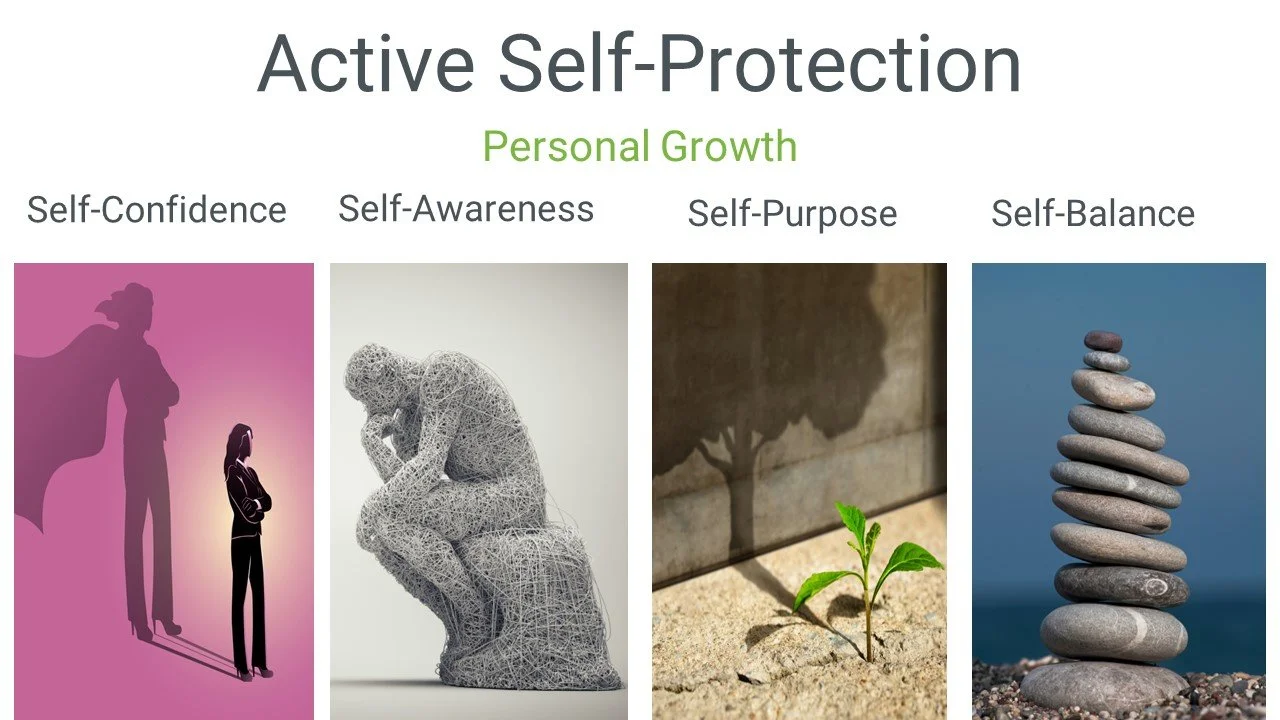Dealing With Difficult People
Dealing with difficult people can be one of the most challenging aspects of life, whether it's in personal relationships or at work. These individuals can drain our energy, undermine our confidence, and create conflict and stress. But by learning how to effectively manage and navigate these interactions, we can reduce the negative impact they have on our lives and build stronger, healthier relationships. In this webpage, we'll explore strategies and techniques for dealing with difficult people, so you can feel more confident and empowered in these situations.
Difficult people come in all shapes and sizes, and they can be found in every aspect of life. They may be aggressive, argumentative, or confrontational, or they may be passive-aggressive, manipulative, or constantly negative. They may have unrealistic expectations, be unwilling to compromise, or be overly critical. Despite these challenges, it's important to remember that difficult people are often struggling with their own issues and insecurities, and that their behavior is often a reflection of their own pain and discomfort. By understanding this, we can approach these interactions with empathy and compassion, rather than reacting with anger or frustration
Use assertive communication is a style of communication that involves expressing your thoughts, feelings, and needs clearly and directly, without being aggressive or confrontational. Some tips for practicing assertive communication with difficult people include:
Use "I" statements: Rather than blaming or accusing the other person, use "I" statements to express how their actions or words have affected you. For example, "I feel disrespected when you speak to me that way," rather than "You are being disrespectful."
Use specific examples: Rather than making generalizations or vague statements, use specific examples to illustrate your point. This can help the other person understand your perspective and avoid misunderstandings.
Stay calm and composed: It's important to remain calm and composed, even if the other person is behaving in a difficult or agitated manner. This can help de-escalate the situation and make it easier to have a productive conversation.
Boundary setting involves establishing limits and boundaries in your relationships, and communicating those limits to others. Some tips for setting boundaries with difficult people include:
Know your limits: It's important to be aware of what you are and are not comfortable with, and to communicate those limits clearly and directly.
Use "no" when necessary: It's okay to say "no" when someone asks you to do something that you are not comfortable with or that goes against your values.
Set consequences: If someone continues to push your boundaries despite your efforts to communicate them, it may be necessary to set consequences for their behavior. This can help reinforce the importance of your boundaries and discourage future boundary-pushing.
De-escalation techniques are strategies that can be used to calm down a difficult person and diffuse tense situations. Some techniques include:
Listen actively: Show the other person that you are listening and trying to understand their perspective by nodding, making eye contact, and asking clarifying questions.
Use empathy: Try to understand the other person's feelings and perspective, and communicate that understanding through your words and body language.
Seek common ground: Look for areas of agreement or shared goals, and focus on those in your conversation. This can help build rapport and move the conversation in a more positive direction.
Seeking support is an important aspect of dealing with difficult people, as it can help you cope with the stress and strain of the situation. Some tips for seeking support include:
Talk to a trusted friend or family member: Sharing your experiences and feelings with someone you trust can help you feel more supported and less isolated.
Consider seeking professional help: If you are struggling to cope with the situation on your own, you may benefit from seeking help from a mental health professional, such as a therapist or counselor.
Join a support group: Joining a support group with others who are dealing with similar issues can be a great source of support and understanding.
Take breaks: It's important to take breaks and prioritize self-care when dealing with difficult people. This can help you recharge and cope with the challenges you are facing.
It is important to communicate assertively, set boundaries, use de-escalation techniques, and seek support when dealing with difficult people. These strategies can help you navigate challenging interactions and maintain your own well-being. Remember to stay calm and composed, and to prioritize self-care. It's also important to be flexible and open to finding creative solutions to difficult situations. By adopting these strategies, you can effectively communicate and interact with difficult people, while still maintaining your own values and boundaries.
As we've seen, the pandemic has had a significant impact on mental health, with many people experiencing increased levels of stress, anxiety, and isolation. This can make it more difficult to communicate effectively and resolve conflicts, particularly when dealing with difficult people. If you're struggling with these issues, it's important to take care of your own mental health and seek support when needed. To learn more about the impact of the pandemic on mental health and strategies for improving your own mental health, be sure to check out our page on mental health after the pandemic, Mental Health in the Age of COVID-19.
This page discusses the ways in which the pandemic has affected mental health, including factors such as social isolation, job loss, and financial stress. It also highlights the importance of addressing mental health issues and provides strategies for improving mental health, such as seeking therapy, engaging in self-care activities, and reaching out to support networks. The page also includes information about resources that are available to help people with mental health issues, such as hotlines, support groups, and therapy services.
Understanding That Our Underlying Problems If Not Address Can Easily Ignite Fights
Perception is reality. What people show is not necessarily the person they are. This course will help you to work around the problem presented and control the escalating situation. De-escalation and verbal conflict resolution are important tools in any situation where people are involved. This is especially true when the stakes are high and emotions are running wild. The course will help you to recognize and control the problem presented to you. De-Escalation is a process of managing emotions and communication in order to prevent violence or aggression. De-escalation techniques can be used in any situation, from professional settings to personal relationships. The course will give you the skills you need to control the situation and prevent violence or aggression from escalating.
Empathy Is Key To Controlling Escalating Situations - Even If You Don’t Mean It.
We've all been there before. Dealing with a difficult person is never fun, but it's a part of life. We all have our own ways of dealing with these types of people, but one thing that can be beneficial in any situation is empathy.
When we put ourselves in somebody else's shoes, we are able to see the situation from their perspective. This understanding can help diffuse the situation and prevent it from escalating into something bigger. When we can see where somebody is coming from, it's easier to find common ground and work towards a resolution.
Of course, empathy isn't always easy. It can be challenging to empathize with somebody who is being difficult, but it's important to remember that they are probably going through something themselves. If we can show them that we understand what they're going through, it will go a long way in resolving the situation.
Bias and Judgement Have To Be Ignored When Trying To Control These Situations
We all have biases. It's human nature. But when those biases begin to impact our ability to control a situation, it's time to take a step back and reassess. In law enforcement, for example, De-Escalation and verbal conflict resolution are essential skills. But if an officer allows his or her own biases to enter into the equation, the results can be disastrous. The same is true in any field where people are required to interact with others on a regular basis. If we're not careful, our biases can cause us to ignore warning signs, fail to see potential solutions and make bad decisions. It takes effort and self-awareness to overcome our biases, but it's essential if we want to control the situation rather than be controlled by it.
Active Self Protection Is A Habit You Must Get Into - It Will Change Your Life
In any given situation, self-confidence, self-awareness, self-purpose and self-balance will always help you more than anything else combined. De-Escalation and verbal conflict resolution are two great examples. If you aren't confident in yourself, your words or your actions then the other person will escalate the situation without fail every time. However, if you can hold yourself with confidence then you appear in control to the other person and they are much more likely to de-escalate the situation. The same goes for being aware of yourself and having a purpose or goal in the situation. If you go into a situation blindly then you are more likely to get caught up in the emotion of it and make things worse. However, if you are aware of what is happening and why it is happening then you can better control the situation. Lastly, having a sense of balance is important. This doesn't mean that you won't have any emotions during the situation, but rather that you won't let those emotions take over and cloud your judgement. When all of these things come together, you will be able to handle any situation that comes your way.





